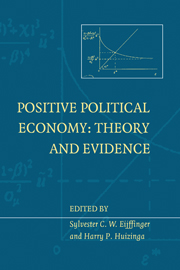Book contents
- Frontmatter
- Contents
- List of figures
- List of tables
- List of contributors
- Foreword
- Introduction
- I Monetary institutions and policy
- II Exchange rate policy and redistribution
- 7 Exchange rate anchors and inflation: a political economy approach
- 8 Why capital controls? Theory and evidence
- 9 The political economy of the Exchange Rate Mechanism
- 10 Unemployment benefits and redistributive taxation in the presence of labor quality externalities
- Comment
- Index
Comment
from 10 - Unemployment benefits and redistributive taxation in the presence of labor quality externalities
Published online by Cambridge University Press: 05 September 2013
- Frontmatter
- Contents
- List of figures
- List of tables
- List of contributors
- Foreword
- Introduction
- I Monetary institutions and policy
- II Exchange rate policy and redistribution
- 7 Exchange rate anchors and inflation: a political economy approach
- 8 Why capital controls? Theory and evidence
- 9 The political economy of the Exchange Rate Mechanism
- 10 Unemployment benefits and redistributive taxation in the presence of labor quality externalities
- Comment
- Index
Summary
This chapter is concerned with the political economy of social security and unemployment. The central question is: Can we explain a political equilibrium with positive unemployment? More specifically, can unemployment be motivated as a deliberate choice of society to keep some (low quality) people out of the labour process? This is a very interesting and relevant issue, particularly in view of the European situation where many people are permanently outside the labor force, being unemployed or disabled.
The basic novelty of the chapter is that the author emphasizes labor quality externalities. Through “peer” effects the quality of one worker depends on the average quality of other workers. Incorporation of this effect has interesting political consequences since it may explain why employed workers support a social security system with positive benefits and unemployment, even without invoking altruism or insurance considerations. Keeping some “low quality” people out of the labor process may enhance overall efficiency, and therefore raise the income of all employed workers.
The chapter has a straightforward set-up. People live in a static world without uncertainty; every agent maximizes her own utility, there is no altruism. The political solution is obtained by applying the median voter theorem. The chapter derives the solution for different combinations of three instruments, a wage tax τ, a lump-sum tax t, and the unemployment benefit b. Yet, despite its clear set-up it is often difficult to grasp what really drives the results.
- Type
- Chapter
- Information
- Positive Political EconomyTheory and Evidence, pp. 289 - 293Publisher: Cambridge University PressPrint publication year: 1998



